Publications
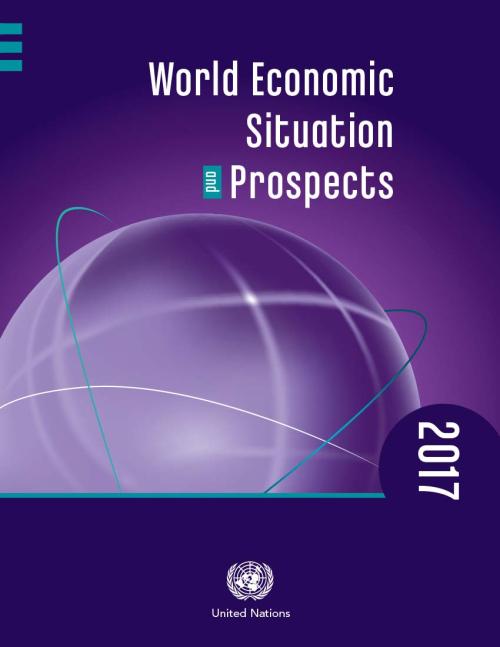
Growth in the global economy has picked up in the last six months in line with expectations, but in many regions, growth remains below the levels needed for rapid progress towards achieving the Sustainable Development Goals, according to the United Nations World Economic Situation and Prospects as of mid-2017 report.
The report identifies a tentative recovery in world industrial production, along with reviving global trade, driven primarily by rising import demand from East Asia. World gross product is expected to expand by 2.7 per cent in 2017 and 2.9 per cent in 2018, unchanged from UN forecasts released in January this year. This marks a notable acceleration compared to just 2.…
Although a modest global recovery is projected for 2017-18, the world economy has not yet emerged from the period of slow growth, characterised by weak investment, dwindling trade and flagging productivity growth, according to the United Nations World Economic Situation and Prospects (WESP) 2017 report.
The report states that the world economy expanded by just 2.2 per cent in 2016, the slowest rate of growth since the Great Recession of 2009. World gross product is projected to grow by 2.7 per cent in 2017 and 2.9 per cent in 2018, a slight downward revision from the forecasts made last May.
Launching the report at the UN Headquarters in New York, Mr. Lenni Montiel,…
Evidence is increasing that climate change is taking the largest toll on poor and vulnerable people, and these impacts are largely caused by inequalities that increase the risks from climate hazards, according to a new report launched by the United Nations today.
The World Economic and Social Survey 2016: Climate Change Resilience—an Opportunity for Reducing Inequalities (#WESS2016), found that governments can play a significant role in reducing the risks of climate change to vulnerable populations. Through transformative policies, the report shows that governments could address the root causes of inequalities and build climate change resilience.
While there is…
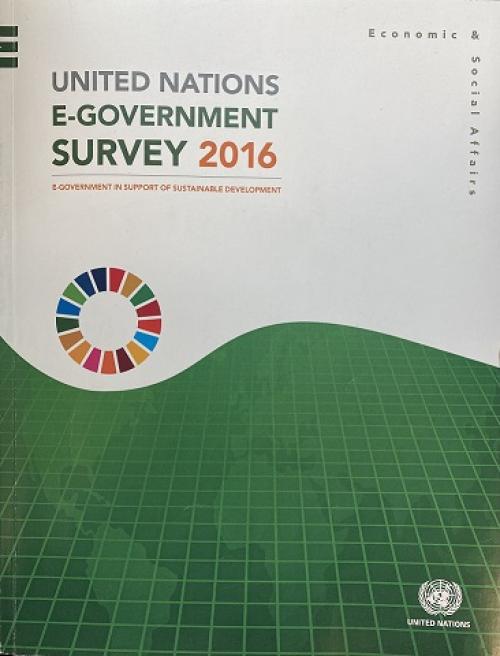
The United Kingdom, followed by Australia and the Republic of Korea, lead the world in providing government services and information through the Internet, e-government, according to a new survey released today by the United Nations showing the progress of nations in promoting e-government.
The 2016 UN E-Government Survey provides new evidence that e-government has the potential to help support the implementation of the 2030 Agenda and its 17 sustainable development goals (SDGs).
The Survey found that United Kingdom has pursued continued development on e-government innovation, and its Government Digital Service has been replicated by other countries around the…
Launching the first-ever Sustainable Development Goals report on the new global development agenda adopted in 2015, Secretary-General Ban Ki-moon said that the 15-year undertaking was “off to a good start” but would require all parts of the UN family and its partners to work together.
“We have embarked on a monumental and historic journey,” the Secretary-General told the UN High-level Political Forum on Sustainable Development (HLPF), which opened on 11 July and ended on 20 July 2016, at the UN Headquarters in New York.
“We must all learn, in national governments, in local authorities, in business and civil society, and also at the United Nations, to think differently,” he…
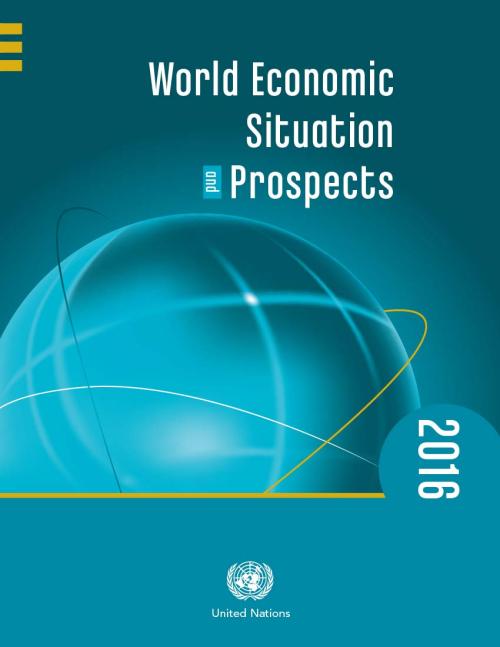
Economic activity in the world economy remains lacklustre, with little prospect for a turnaround in 2016, says UN DESA’s World Economic Situation and Prospects as of mid-2016 report, launched today. According to the report, world gross product will grow by just 2.4 per cent in 2016, the same pace as in 2015, marking a downward revision of 0.5 percentage points from UN forecasts released in December 2015.
Persistent weakness in aggregate demand in developed economies remains a drag on global growth, while low commodity prices, mounting fiscal and current account imbalances and policy tightening have further dampened prospects for many commodity-exporting economies in Africa, the…
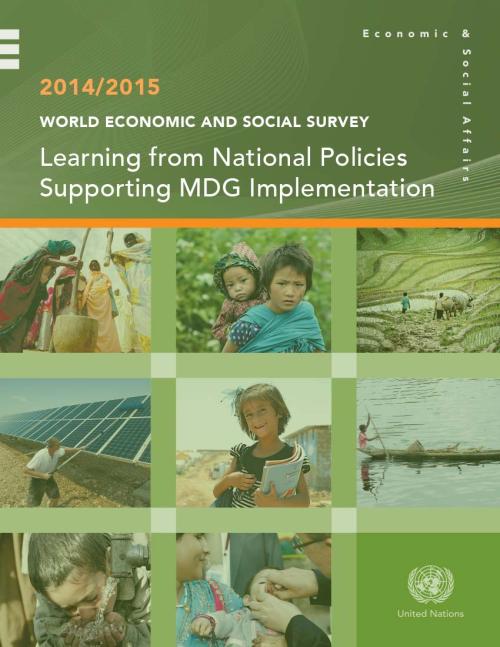
The launching of the Millennium Development Goals (MDGs) at the dawn of the present century ushered in one of the most important initiatives undertaken by the United Nations. Concerted efforts at the international, national and subnational levels to achieve the MDGs have brought about significant development progress over the past 15 years. Nevertheless, important development gaps remain.
The year 2015 was one of global action on the unfinished business of the MDGs and the many other challenges facing humankind. Once again, the United Nations has taken the leading role in promoting development for all, and through an inclusive consultation process has formulated the 2030 Agenda…
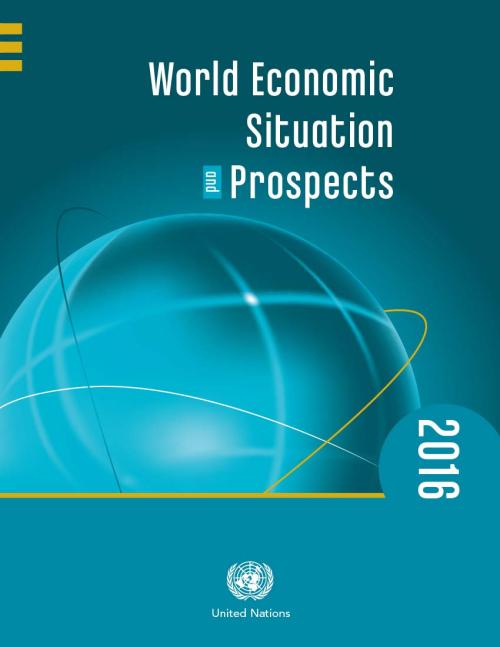
The world economy stumbled in 2015 and only a modest improvement is projected for 2016/17 as a number of cyclical and structural headwinds persist, says the United Nations World Economic Situation and Prospects (WESP) 2016 report.
Global growth is estimated at a mere 2.4 per cent in 2015, marking a downward revision by 0.4 percentage points from the UN forecasts presented six months ago. Amid lower commodity prices, large capital outflows and increased financial market volatility, growth in developing and transition economies has slowed to its weakest pace since the global financial crisis of 2008/2009.
Given the much anticipated slowdown in China and persistently weak…
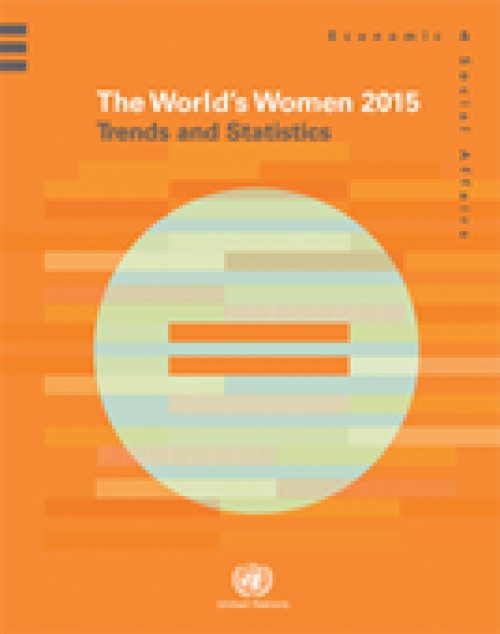
The lives of women and girls around the world have improved in several areas over the last 20 years, according to the new UN DESA report “The World’s Women 2015,” launched today. Coming on the heels of the recently adopted Sustainable Development Goals (SDGs), this new set of data on women and girls worldwide brings into sharp perspective the need for gender equality outlined in Goal 5.
“We cannot achieve our 2030 Agenda for Sustainable Development without full and equal rights for half of the world’s population, in law and in practice,” said UN Secretary-General Ban Ki-moon at a recent event on gender equality organized on the side of the Sustainable Development Summit.…
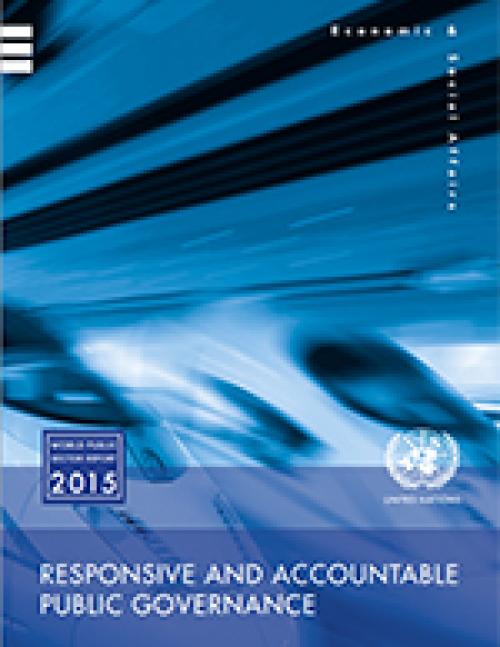
The 2015 World Public Sector Report (WPSR) published, titled Responsive and Accountable Public Governance, analyses the most salient features of public governance for enabling inclusive economic growth, social justice and environmental sustainability.
Heads of state and government have adopted a new development agenda to guide sustainable development efforts for the next 15 years. Member States will have the responsibility of turning this collective vision of sustainable development into reality for their citizens. These aspirations will not be realized without a transformation of public governance to support integration among different levels, spheres and sectors. Policies,…
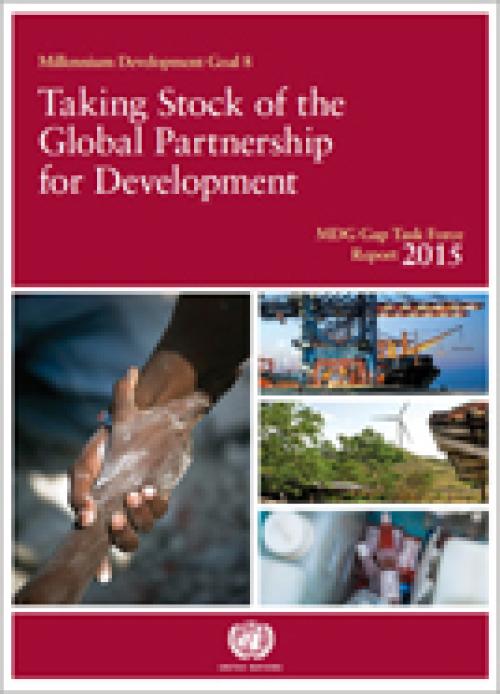
The Millennium Development Goals (MDGs) achieved significant progress over the past 15 years, but persistent gaps in official development assistance and an insufficient access to markets, affordable medicines and new technologies have highlighted the need for a rejuvenation of the global partnership for development, according to a new report launched today by United Nations Secretary-General Ban Ki-moon.
The “Taking Stock of the Global Partnership for Development” report of the United Nations MDG Gap Task Force monitors the recent achievements and challenges in the implementation of the Millennium Development Goal 8, while looking ahead towards the new…
Evidence shows that the global Goals worked. They galvanized the entire global community to address the most pressing issues at the beginning of the Millennium, centered in lifting people from extreme poverty and improving the lives of those most disadvantaged. “The MDG experience provides compelling evidence that the international community can be mobilized to confront complex challenges. Governments, civil society and a wide range of international actors coalesced behind the MDGs in a multi-front battle against poverty and disease,” said Secretary-General Ban Ki-moon.
They served as a framework for local, national, regional and global monitoring of development progress…
 Welcome to the United Nations
Welcome to the United Nations